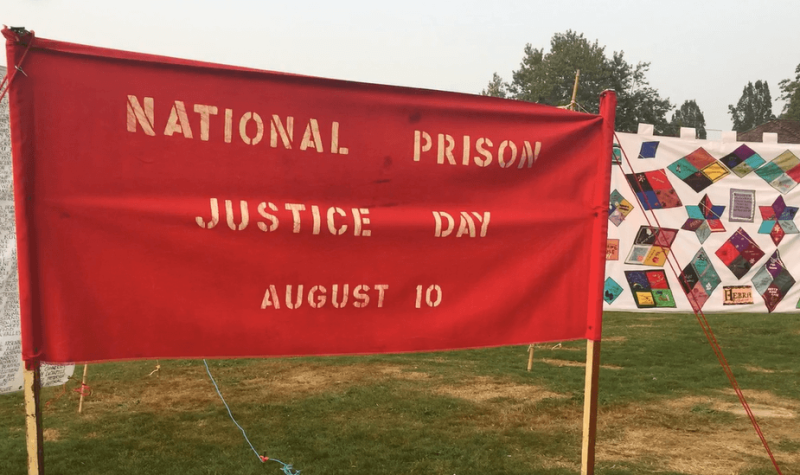August 10 has been set aside to remember all the men and women who have died in prison from murder, suicide, and neglect. August 10, 2021, marked the 47th anniversary of prisoner Eddie Nalon's death, in 1974, in Millhaven Maximum Security Prison, in Ontario. Two years later, following the example set by Millhaven's inmates in 1975, thousands of prisoners across Canada went on a one-day hunger strike, while Prison Justice Day committees were formed in Quebec, Ontario, and British Columbia.
Like every year on August 10, the Vancouver Prisoners’ Justice Day Committee held a memorial rally. Stories from prisoners and organizations helping them were shared. Today on the show we hear some of those testimonies.
After a short introduction by Eddie Rouse, a founding member of the West Coast Prison Justice Society, we hear from Ruby Harry, an Indigenous woman sentenced to life in prison. She explains how a childhood of abuse brought her there and how she took every opportunity to educate herself while in prison. "I took any kind programs they had, every certificate program, every kind of education they had to offer."
Today, free on parole and employed, Harry has reconciled with her family. "I knew that my grandson would never ever see me high or drunk ever. So he's going to be 13 and I'm going on 14 years clean," she says.
We then hear from Crystal, who shares her experience trying to have the remains of a paroled friend who died without any next of kin released to her. "If no one claims you, if you're lucky you're put into a group cremation and left with a marker somewhere. If you're lucky...."
Next, we hear from Little, a young indigenous woman, and a victim of residential school intergenerational trauma, who was incarcerated when she was 15, for what she thought was second-degree murder. A lack of education and efficient representation lead her to believe she would die in jail. It's only at 18, after she moved to the adult carceral system, that she learned the charges were in fact dropped down to manslaughter and that she was eligible for parole. But being on parole wasn't easy. "You have to understand, being in prison is easy for me. [...] I have to work my *** off just to stay out and it is hard. I had never had a real job, I was so intimidated by it because I was inside since I was 15. I didn't know how to communicate."
Finally, we hear from the Prison Justice committee's members. One of them, Meenakshi, reminds us that "prison is not this far away thing."
To learn more about prison justice consult the websites of the Westcoast Prison Justice Society and the Vancouver Prison Justice Committee.
To hear more testimonies from this year's event, go to the Vancouver Prison Justice Groups' Facebook page.
The music heard during this segment was captured at the event. Drums by Love Medicine. The final song is by Solidary Notes Choir.


